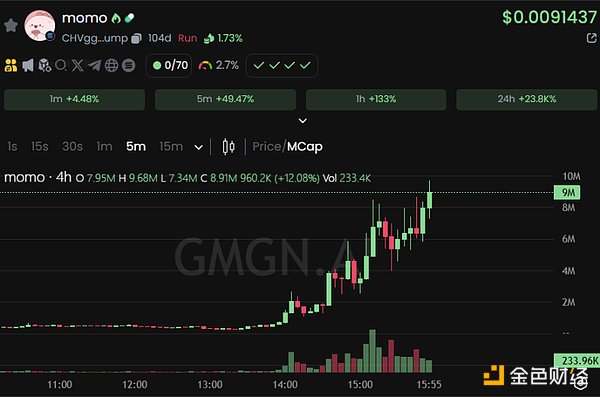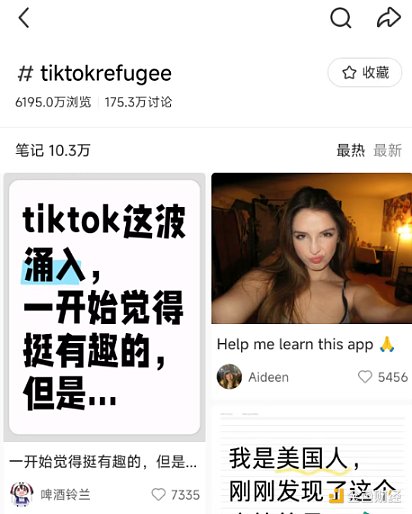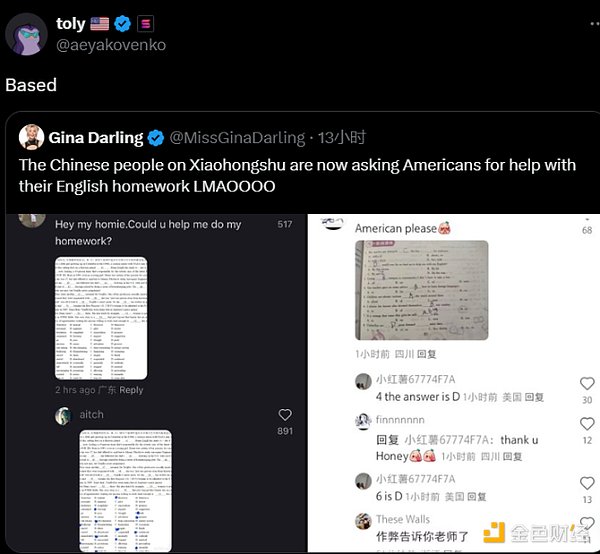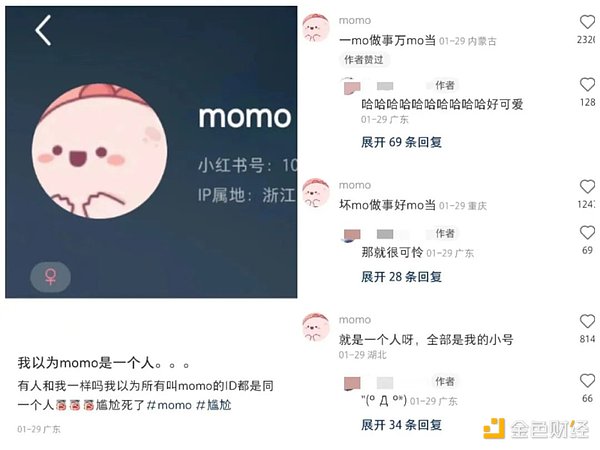Written by: Pzai, Foresight News
January 19 is the date of the "Tiktok ban" bill approved by the US Supreme Court. As this deadline approaches, Xiaohongshu has unexpectedly become a new gathering place for a large number of American users (self-proclaimed "TikTok refugees"). As a result, the MEME token MOMO on Solana has soared from the bottom. As of press time, its market value has soared from $100,000 to nearly $12 million, reflecting the market's fanatical pursuit. What is MOMO? Why are users flocking to a pink dinosaur avatar?

Identity
On January 10, the U.S. Supreme Court announced that it would maintain the ban on TikTok, requiring its parent company ByteDance to divest TikTok by January 19, 2025, otherwise it would face a complete ban. This decision has aroused strong dissatisfaction and concern among American users, especially creators and ordinary users who rely on TikTok. They began to look for alternative platforms, and Xiaohongshu has become the first choice for many American users because of its similar content format and community atmosphere to TikTok. These users created the "TikTokRefugee" label on Xiaohongshu to share their migration stories and life content. As of January 13, the number of notes under this label has exceeded 84,000, and the total number of views has exceeded 61 million. The download volume of Xiaohongshu also soared to the top of the free list of the US App Store in a short period of time.

The incident also attracted the attention of the crypto community. Solana founder Toly retweeted the relevant tweets of Xiaohongshu, reflecting the popularity of the incident in the United States. MOMO is one of the design IPs under WeChat. When users use WeChat authorization to log in to Xiaohongshu, Douban, Zhihu and other platforms, if they choose to skip the naming and avatar steps, WeChat will provide a system default ID and avatar, and MOMO is one of them.

As more and more users actively choose the nickname and avatar "MOMO", it has gradually evolved into a synonym for an anonymous group. From a psychological perspective, this phenomenon reflects the complex mentality of contemporary young people under privacy protection and social pressure. First, choosing an anonymous identity may be due to the need to protect privacy, avoid being discovered or tracked by acquaintances, and thus maintain personal privacy in the Internet era of highly transparent information. This behavior may be an escape from social expectations or a resistance to the pressure of a unique online identity.
Secondly, choosing "MOMO" may be a way to simplify identity and reduce the pressure of maintaining a specific online persona on multiple platforms. Users may feel safer to express themselves under the "MOMO" identity and gain a certain degree of psychological security without worrying about the consequences, which is of great significance to their mental health and online interaction. In addition, as a representative symbol in this hot topic, "MOMO"'s anonymity and meme spread are exactly in line with the values and practices of crypto culture, just as users choose "MOMO" to maintain the privacy and control of their digital identity.

In previous cases, we can see the significant MEME effect brought by TikTok. And this effect may also be reproduced on Xiaohongshu again, because the spread of MEME often relies on group effects and "herd mentality". MEME, as a highly symbolic content form, can quickly convey emotions and opinions, and has low threshold participation. As a platform based on UGC (user-generated content), Xiaohongshu's interaction and imitation behavior between users will accelerate the spread of MEME, quickly trigger the participation of more users, and form a snowball effect. And for the Chinese community, the spread of Xiaohongshu MEME is more conducive to user participation, because the cultural barriers of MEME are disappearing rapidly and even impacting the external cultural circle.
 Weatherly
Weatherly








